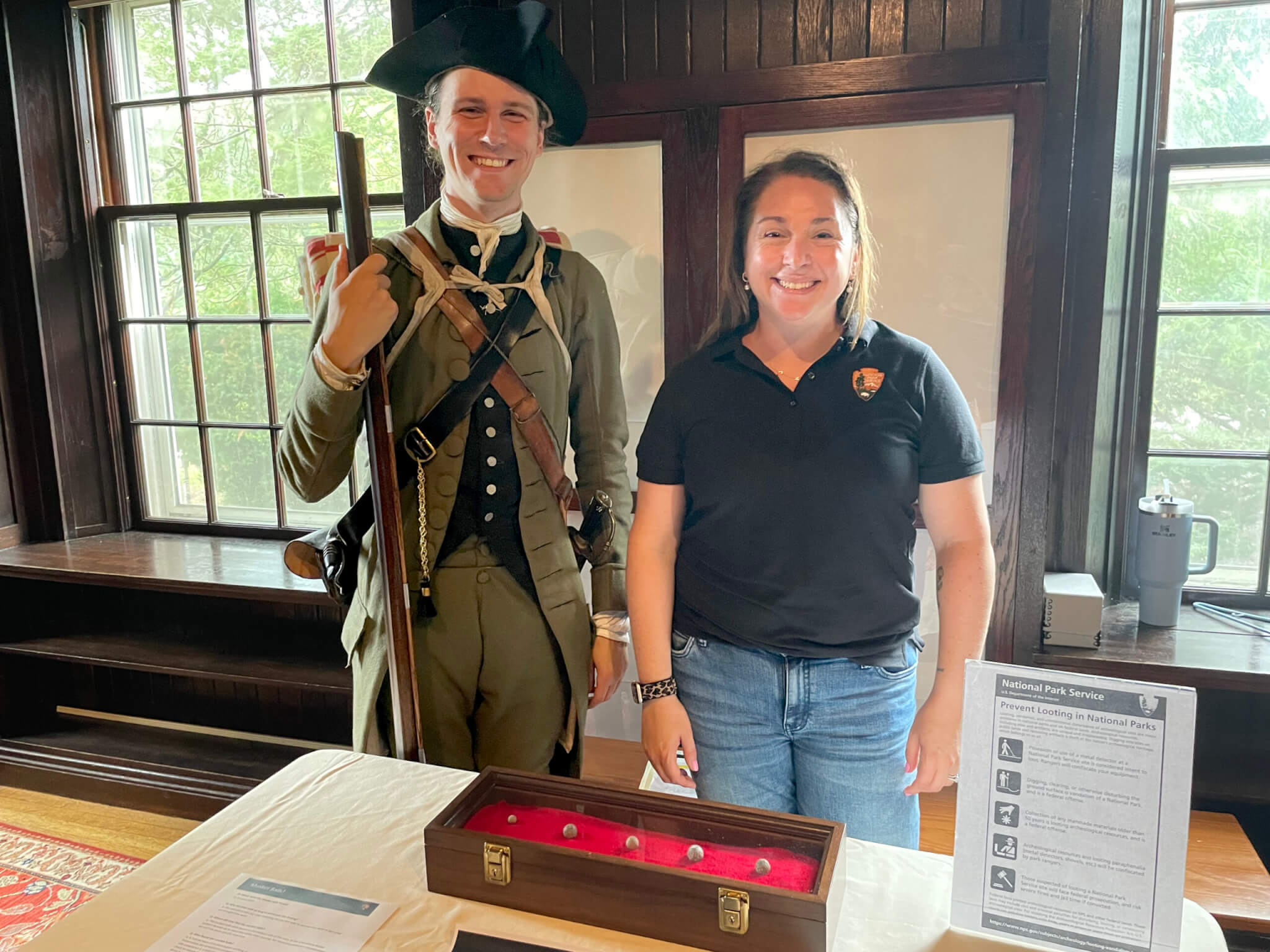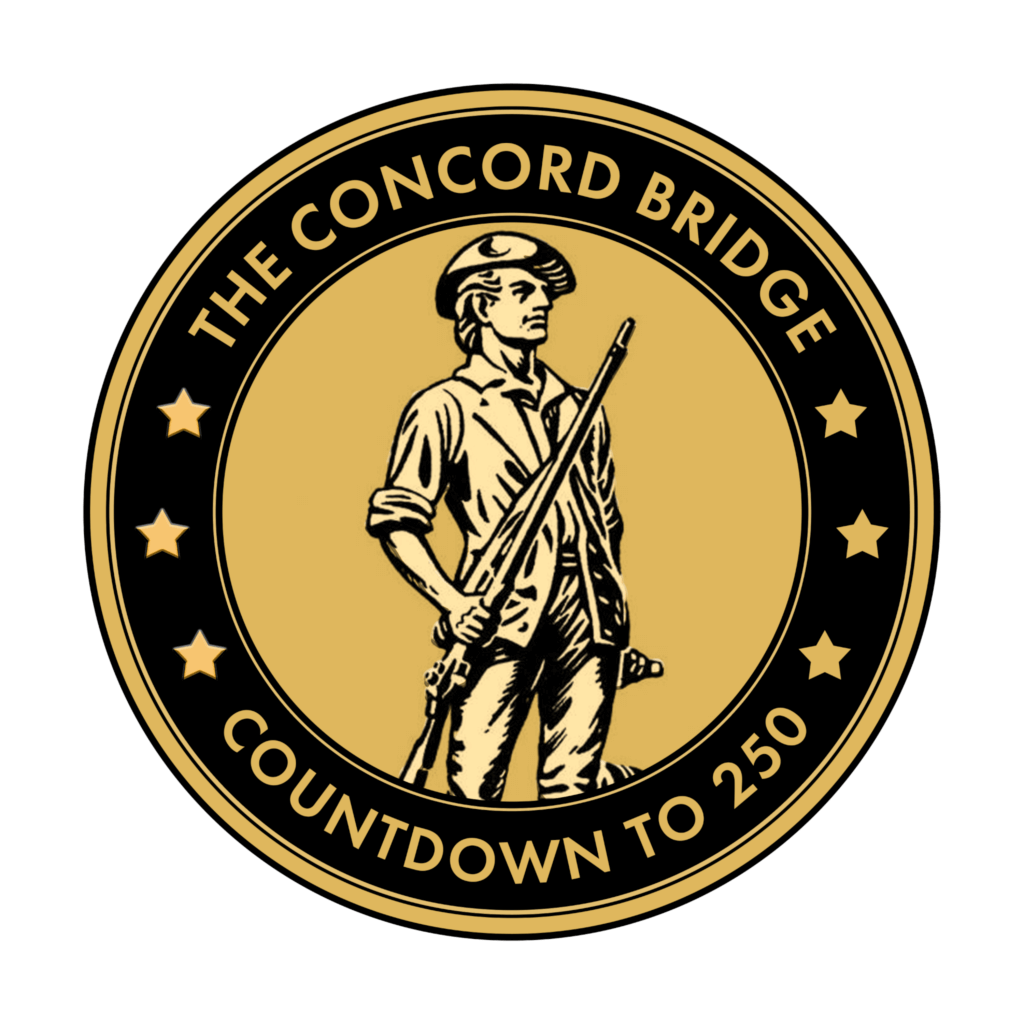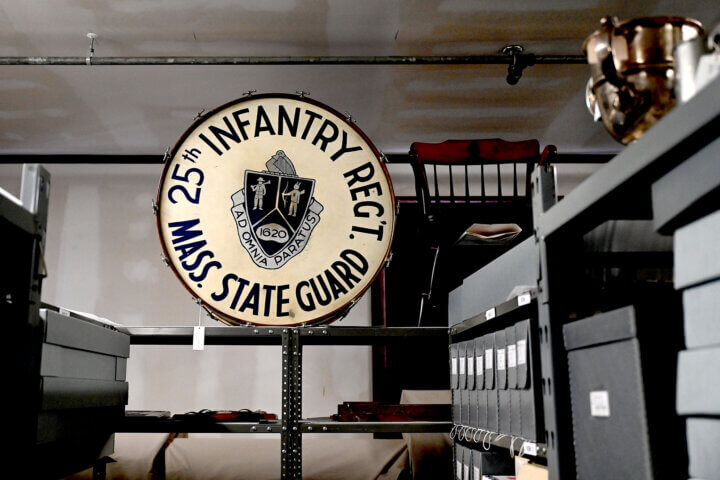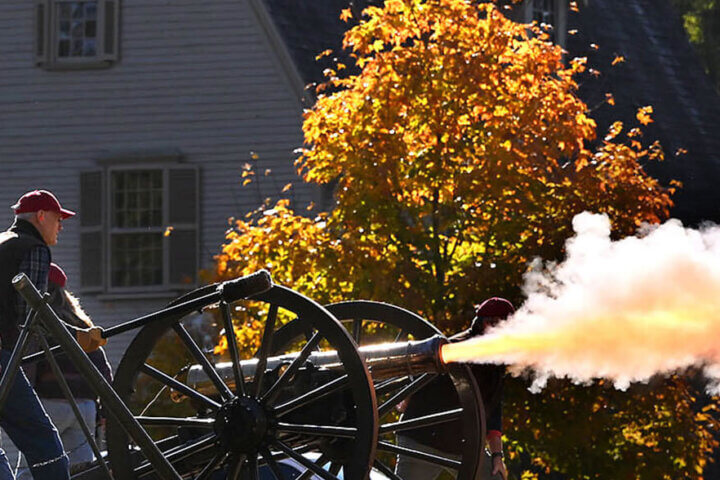By Christine M. Quirk — Christine@concordbridge.org
Schoolchildren learn the American Revolution began in our backyard on April 19, 1775. This month, lucky history buffs glimpsed a literal piece of that history when musket balls discovered at the North Bridge were on display in a visual representation of “the shot heard round the world.”
Ryan Ford of Grafton brought his wife and his son, Aiden, 9, to Minute Man National Historical Park.
“We’re big history fans, and I love anything that can be tied to actual events,” he said. “It’s so cool seeing this after reading about it for years in history books.”
A Revolutionary mystery
Archeologists found the musket balls in early 2023 while surveying the land in preparation for trail maintenance, but park officials took time to authenticate them.
“There are a few different ways scientifically we can look at them,” said Park Ranger and historic weapons specialist Jarrad Fuoss, noting that the patina on the ammunition helps indicate its age.
“On top of that is the context of where they were found,” Fuoss said. “These were all found in the vicinity of where the British soldiers had formed up to resist the river crossing. So it’s highly likely these were fired from the other side of the river.”
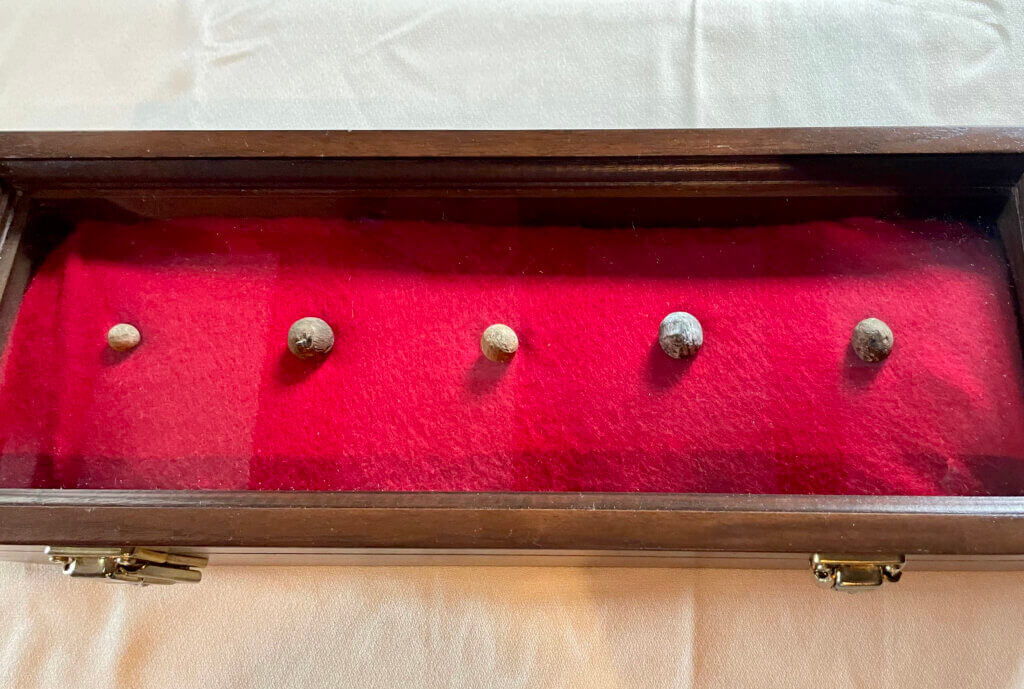
A fired musket ball has a band running through its middle, caused by its travel through the gun barrel. All the found musket balls have these bands, indicating they were shot across the water, not dropped by the British who mustered there.
The balls vary in size, which is another clue, Park Curator Nikki Walsh said.
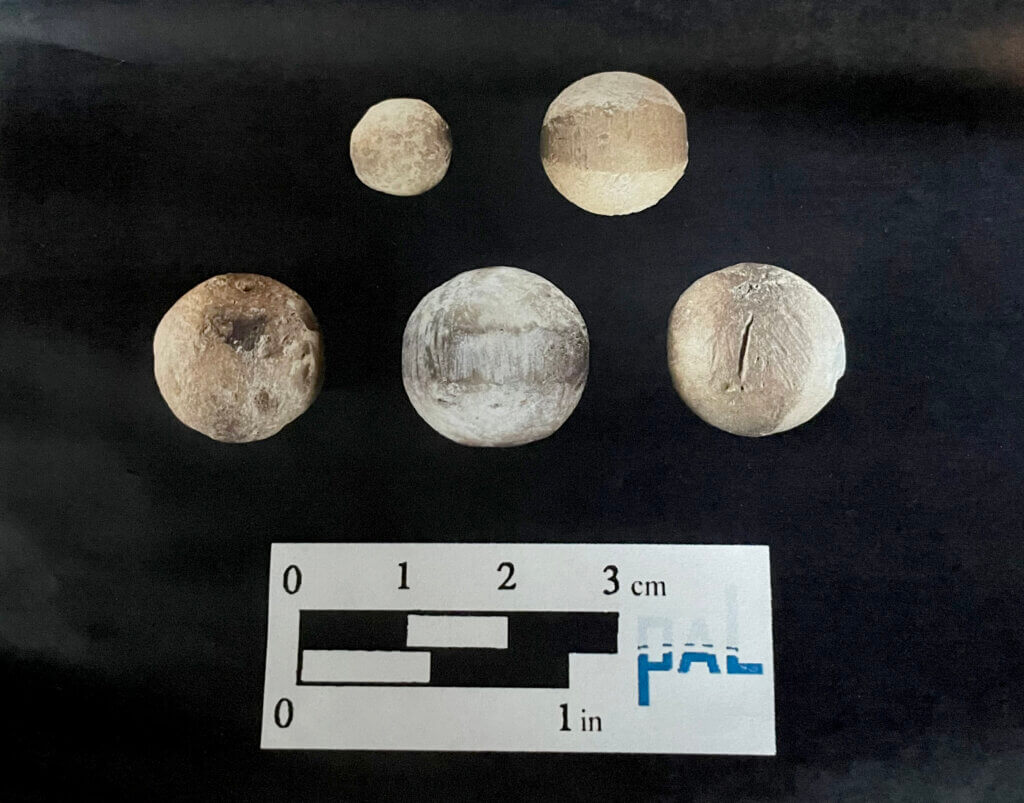
“The colonials had whatever musket they had, and 20 balls that fit in that musket,” Walsh said. “So we know they were fired by different-sized guns, which leads us to believe that they were not British, they were colonial, and that lines up with where we found them.”
And Fuoss noted the balls were found close to one another.
“Based on the accounts that we have, it’s highly unlikely you would find this many musket balls in this area and they weren’t involved in the battle,” he said.
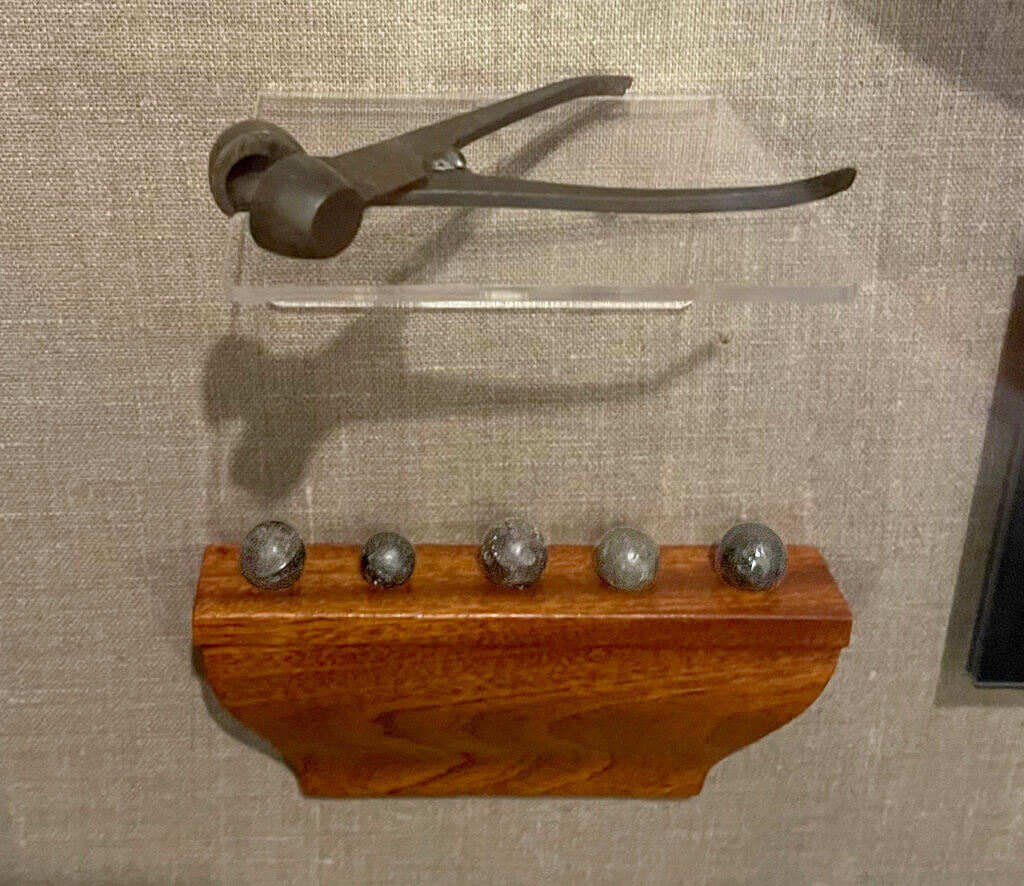
Don’t be like Thoreau
Walsh and Fuoss said professional researchers are not the first to discover musket balls near the bridge. That distinction may belong to Henry David Thoreau.
“Thoreau was fascinated with history,” Walsh said. “He was an amateur archeologist and would go through the fields and pick up musket balls. That’s great for Thoreau; however, it removed any context of these finds for archeologists.”
Thoreau’s musket balls, Walsh said, were donated to the Concord Museum.
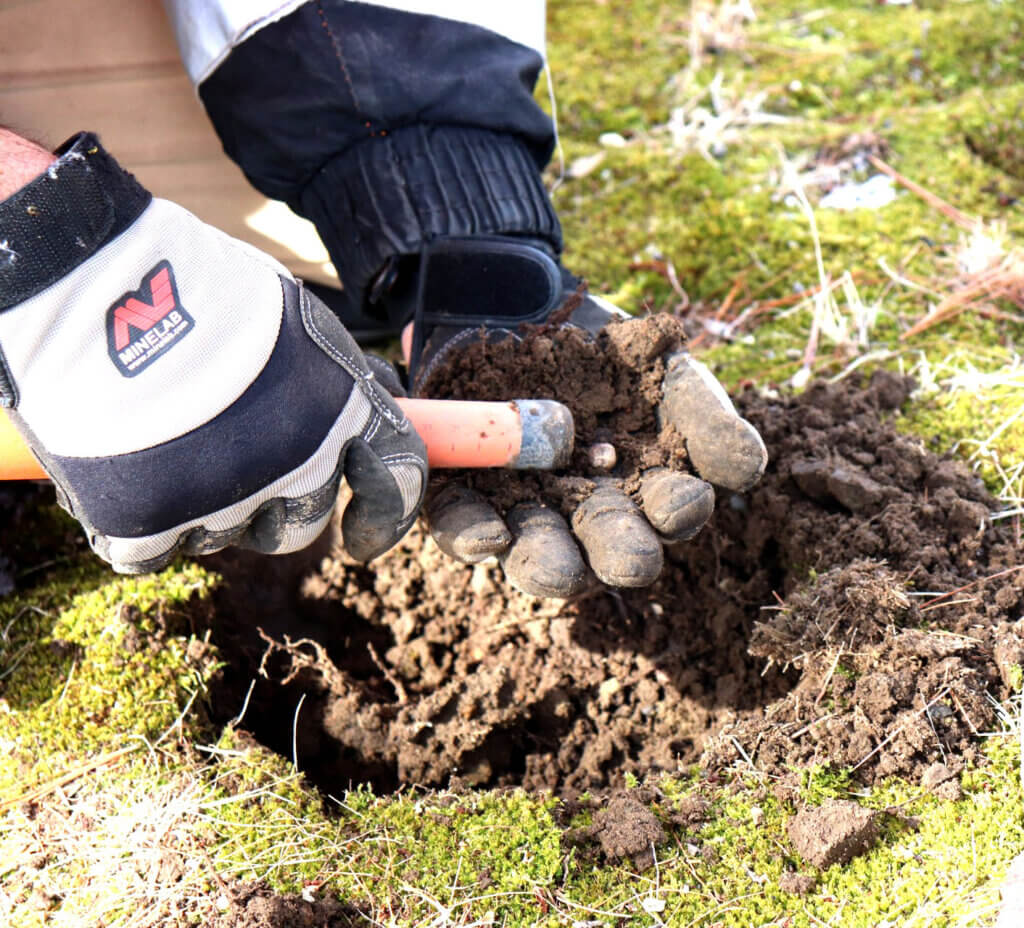
“Unfortunately, a lot of the stuff that he found on what is now park property is no longer on park property,” she said.
Minute Man National Historical Park didn’t exist in Thoreau’s time; it was established in 1959. Now, using a metal detector — and removing objects found on park property — are illegal.
That restriction protects the integrity of any finds, the rangers said. It helps preserve history so visitors like Concordian Brady Summers, who pushed his 11-week-old daughter Clara’s stroller past the artifacts, can enjoy them.
“We come here a lot, so it’s cool to see this discovery,” he said. “Hopefully, she’s the youngest one here today.”


